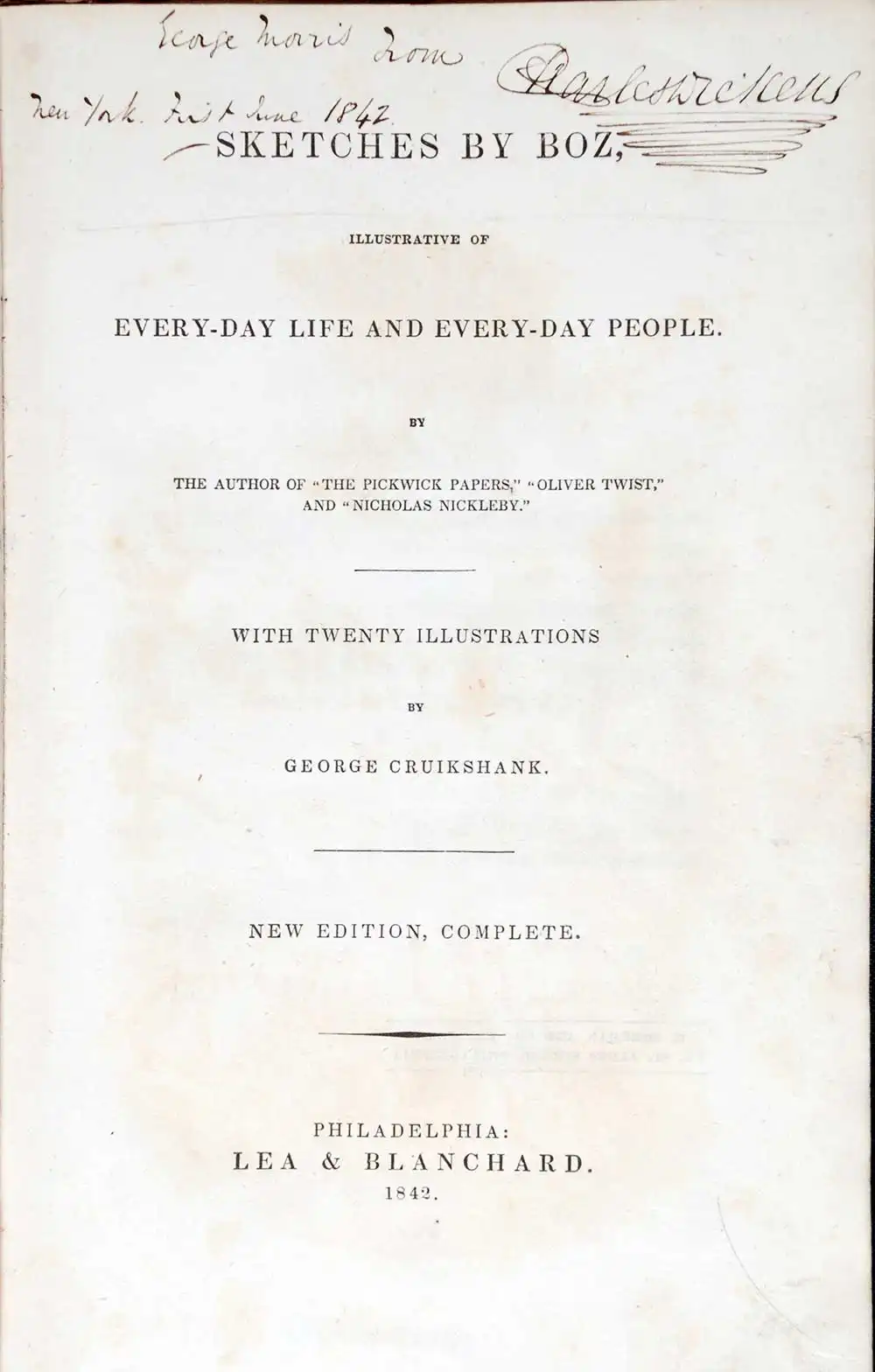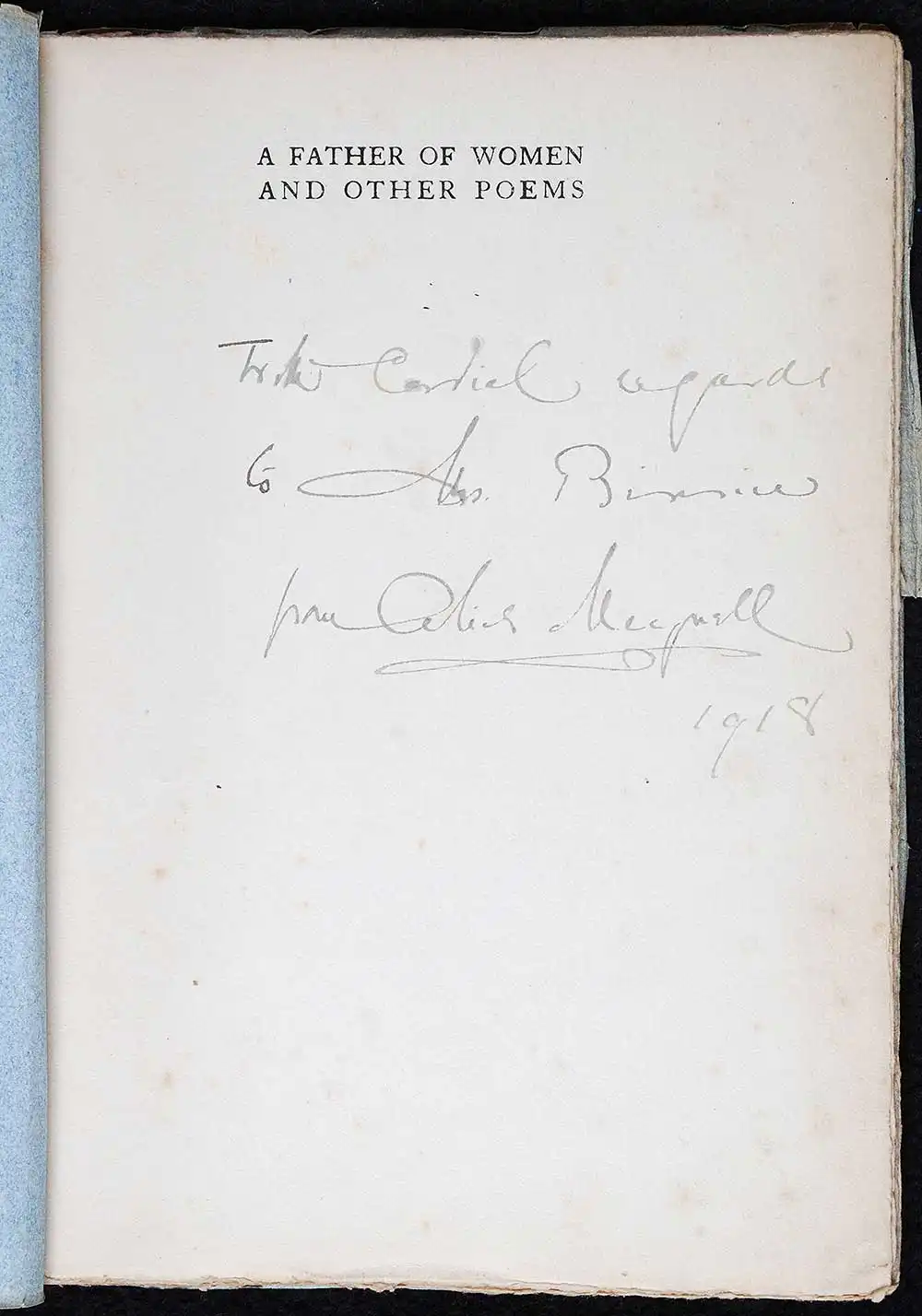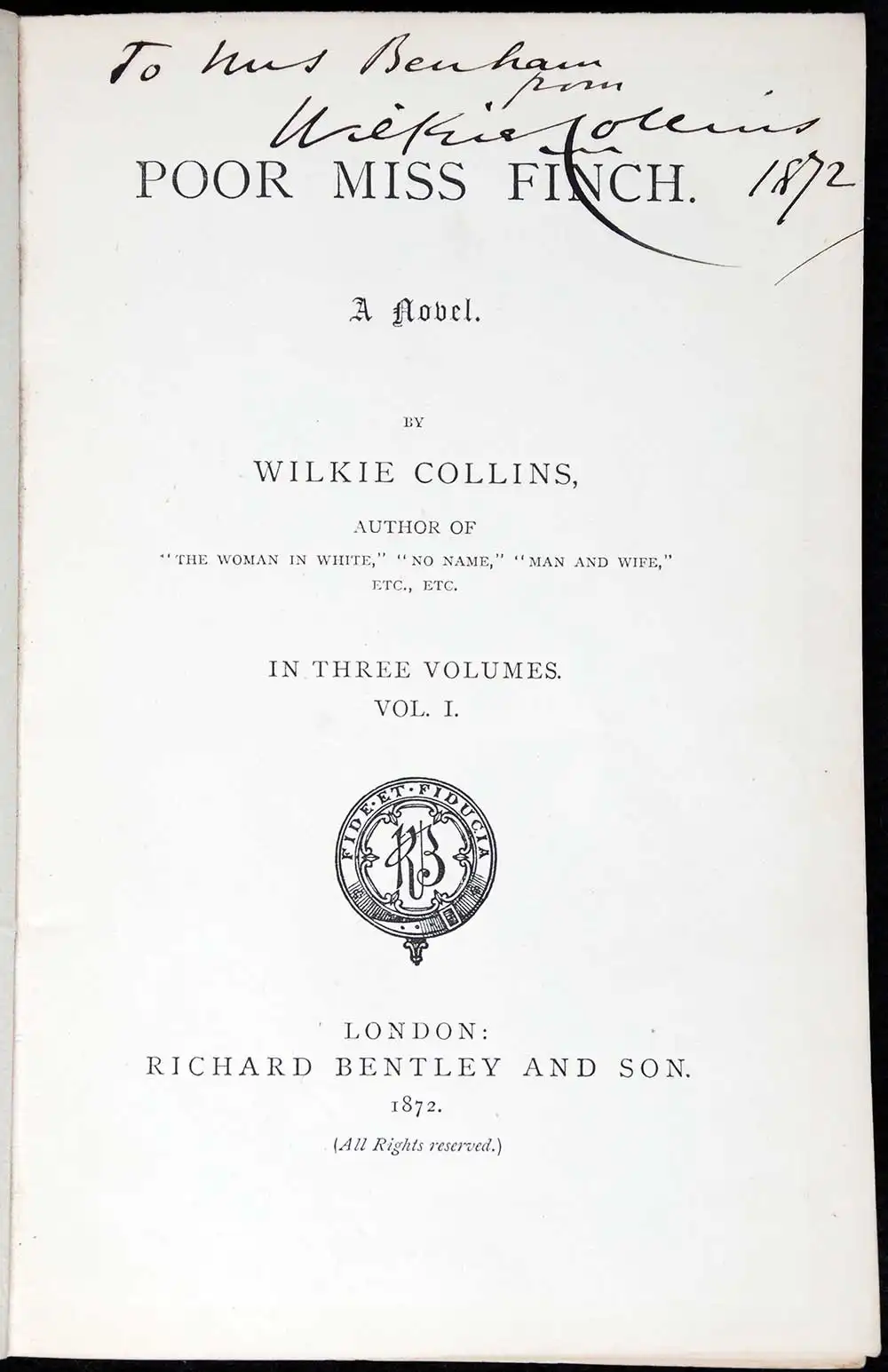Case 3
- Authors’ Presentation Inscriptions 1

Charles Dickens. Sketches by Boz: illustrative of every-day life and every-day people. New edition. Philadelphia: Lea & Blanchard, 1842.
One of
Alfred Reed’s later purchases was a copy of an 1842 American edition of Sketches by Boz bearing Dickens’ signed
presentation inscription to General George Morris (1802-1864). Morris was a
well-known American journalist of his day, who edited the New York Mirror and Ladies’ Literary Gazette and wrote the largely
forgotten poem ‘Woodman, spare that tree.’
When
Dickens travelled to America for the first time in 1842 with his wife
Catherine, they met with a tumultuous reception at New York. They were greeted
by General Morris who escorted them to a theatre ballroom filled with more than
three thousand people.
His
first American trip provided Dickens with an immense amount of material for American notes, and the seeds of Martin Chuzzlewit.

Charles Dickens. Sketches by Boz: illustrative of every-day life and every-day people. New edition. Philadelphia: Lea & Blanchard, 1842.
Open image in new window

Alice Meynell. A father of women: and other poems. London: Burns & Oates, 1917.
Alice
Christiana Meynell (1847-1922) was an English poet, journalist and suffragist.
Her father, Thomas James Thompson, was a friend of Charles Dickens. She married
the Roman Catholic journalist Wilfrid Meynell in 1877 and settled in London,
where the couple edited various periodicals including the Weekly register and Merry
England. Mrs Meynell became the loving mother of eight children while
continuing her journalist work.
The Reed
Collections contain a copy of one of Meynell’s later poetic anthologies A father of women, with the author’s
presentation inscription on the half-title page.

Wilkie Collins. Poor Miss Finch: a novel. London: Richard Bentley, 1872. Three volumes; Vol. 1 displayed.
The
first volume of the Reed Collections copy of Wilkie Collins’ Poor Miss Finch contains a presentation
inscription by the author to Mrs Benham. Wilkie Collins’ biographer Andrew
Lycett suggests that Mrs Benham is probably the wife of Wilkie’s friend Charles
Benham.
William
Wilkie Collins (1824-1889) was an English novelist, playwright and short story
writer. His best known novels were written in the 1860s, and include The woman in white (1860), Armadale (1866) and The moonstone (1868).
In 1851,
Collins met and became close friends with Charles Dickens, who found his
enjoyment of life and disregard for its conventions refreshing. A number of his
works were first published in Dickens’ periodicals Household words and All the
year round, and the two authors collaborated in several fictional and
dramatic works.

Wilkie Collins. Poor Miss Finch: a novel. London: Richard Bentley, 1872. Three volumes; Vol. 1 displayed.
Open image in new window


